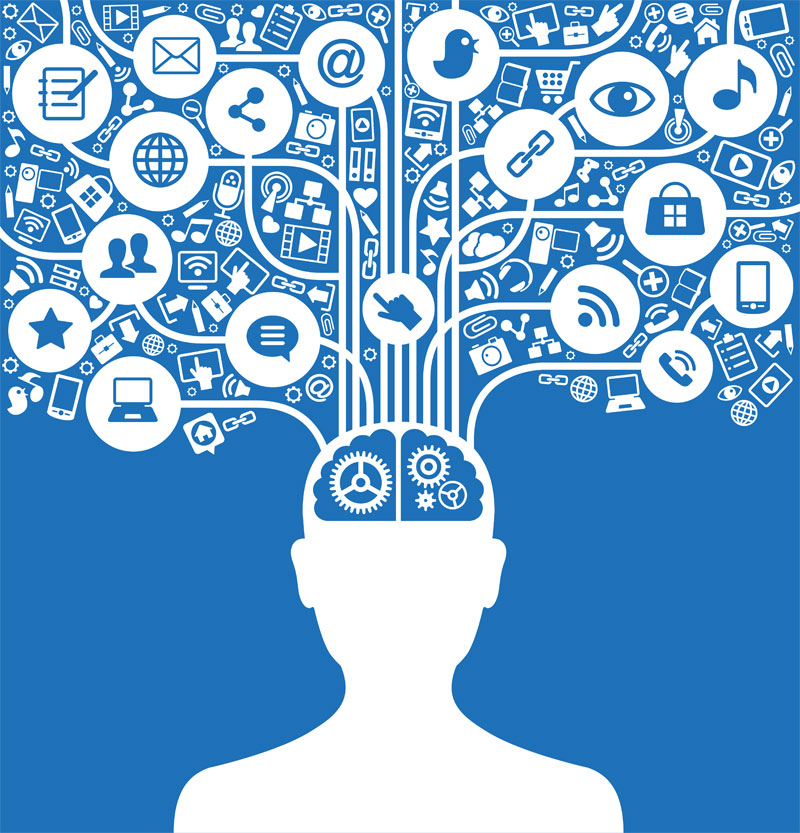There are many studies that state that face to face human interactions are as beneficial to health as sleep, nutrition, and exercise. It seems that these days we are spending less time making that a priority and more and more time looking at our many devices. Just this week we learned that Facebook is planning radical changes to our Facebook feeds in the hopes that we have more meaningful social exchanges. Is our addiction to Tech a health problem? I think so. Perhaps a digital detox is part of our plans for 2018.
We wanted to share this interesting article from the folks at MindBodyGreen.
While technology and social media represent a wonderful way to stay connected, they have been met with their fair share of resistance this year. New research shows that those who spend more time on social media feel less socially fulfilled, and the more platforms we are on, the more stressed out we become. Entrepreneurs who have been in the digital space for years are now beginning to step back, one by one, and assess what it is they really want to be creating.
Facebook’s own Sean Parker revealed that the platform’s goal was always to find the answer to, “How do we consume as much of your time and conscious attention as possible?” Other ex-Facebook execs are speaking publicly about its harmful effects on how it’s changed human interaction. For a society with a rapidly growing addiction to technology, knowing of the conscious intent to “hook” users and seeing it work is disconcerting. Earlier this year, 60 Minutes releaseda special on the psychology of technology. We love checking our phones because the apps are designed to grab and keep our attention. “Inadvertently, whether they want to or not, they are shaping the thoughts and feelings and actions of people. They are programming people,” Tristan Harris, a former Google project manager, told Anderson Cooper in the interview. Media bigwig and creator of REDEF Jason Hirschhorn recently wrote about how harmful tech really is in a spot-on REDEF post. “The irony that these platforms were built to bring us closer together but may be tearing us apart is not lost on me.” The one and only Steve Jobs even told journalist Nick Bilton that his kids were not allowed to use iPads, and he’s one of many tech execs who currently impose strict limits on their kids’ screen time.
Smartphone addiction, which is currently a hot topic on Google trends, has a dark side. There’s been a cascade of brand-new research and concern about how tech, which is designed to grab and keep our attention, could be affecting our brains. Research has found that young people are especially susceptible to changes in brain chemistry, which can lead to increased drowsiness, anxiety, and may be linked to the tragic increase in teenage depression and suicideslately.
The good news is that addiction is reversible in most cases with cognitive therapy. And as we begin to crave a more intentional relationship with technology, the industry is responding with mindful offerings of its own. Moment is an application that allows you to set a limit on the number of times you can check your devices each day, and the Forest App plants a tree after you spend a certain amount of hours off your phone.
Dave Morin, a former Facebook exec who’s founded his own VC firm, Slow Ventures, and now serves on the board of directors for Esalen, is on board with unplugging. In relation to his latest project, Sunrise, a mental health startup to fight depression, he explains this inverse relationship: “The brain is designed for making real-world connections with other humans and learning from real-world experiences. Anything that takes away from that reduces your well-being. So the challenge is in finding balance.”
At the same time, in-person meeting circles continue to facilitate a return to face-to-face contact. The Wing, an NYC-based female-only co-working space (one of our trends from last year), recently landed a $32 million investment from WeWork, and similarly communal spaces like JIG+SAW, Loom, and WMN Space are also welcoming new members in droves, showing that millennials crave more in-person connection. “Mindful relationships with anything are all about spending time intentionally. Set up your digital life so that you are in control of your attention—not technology companies,” suggests Morin. So keep using that phone, but make airplane mode your friend too.











